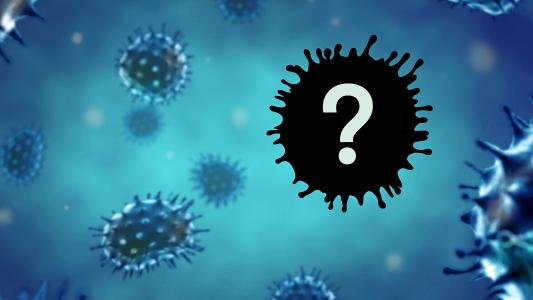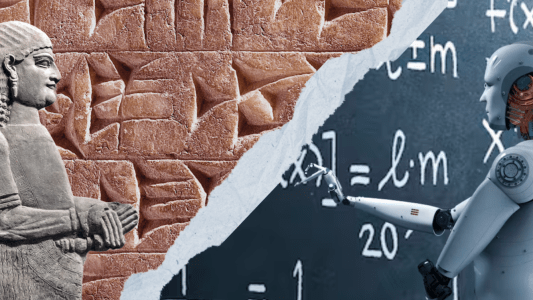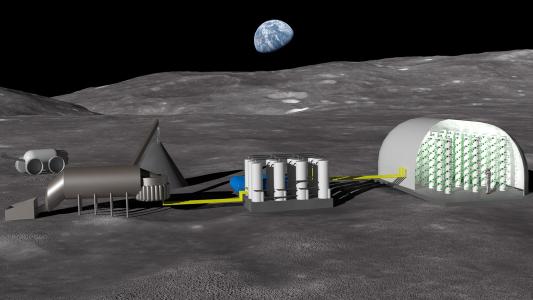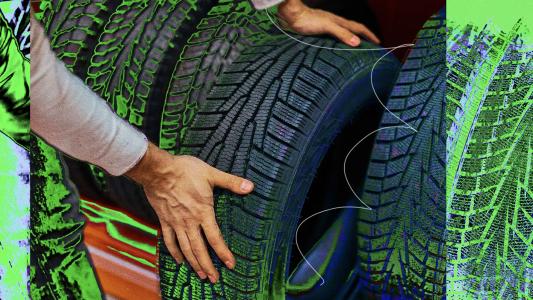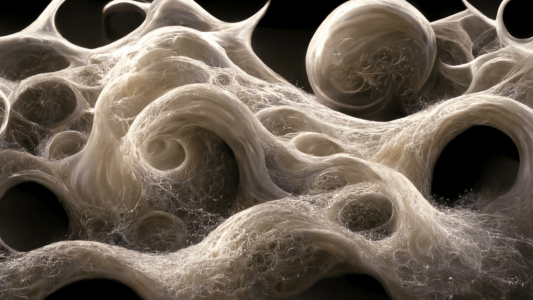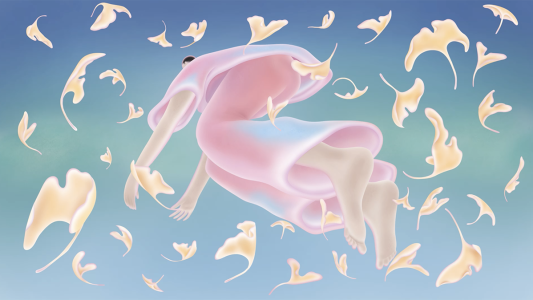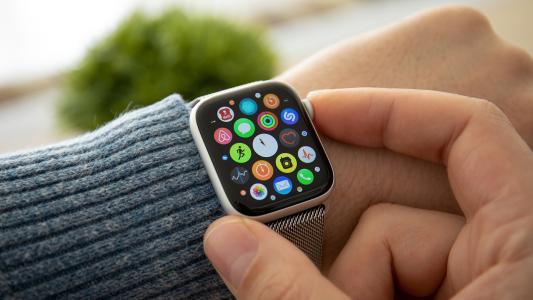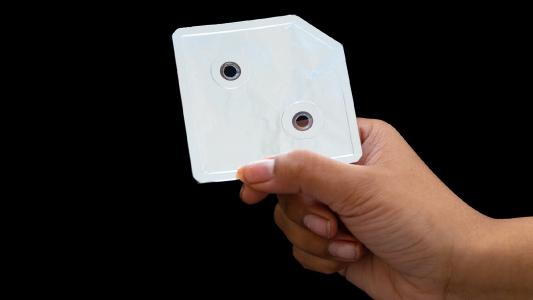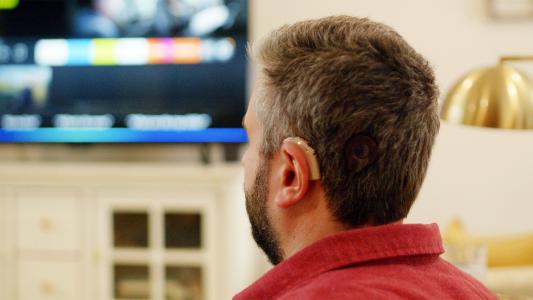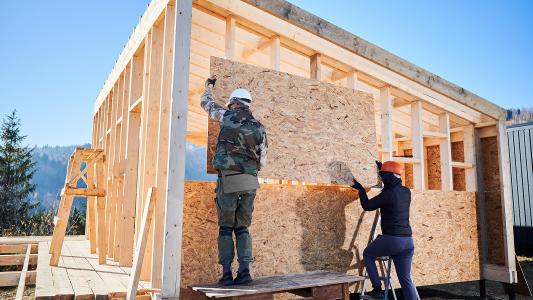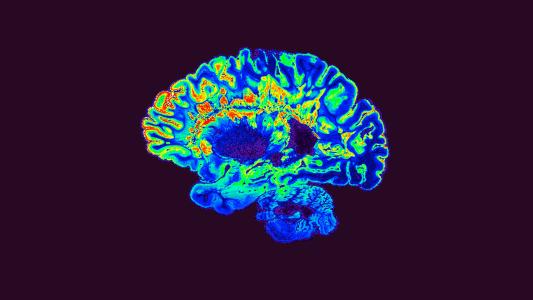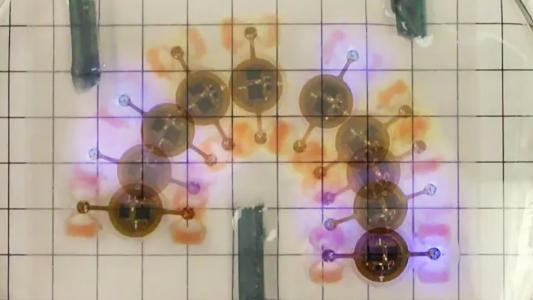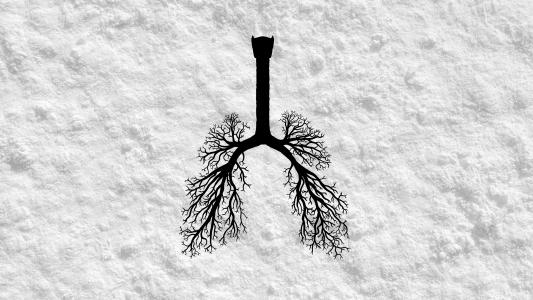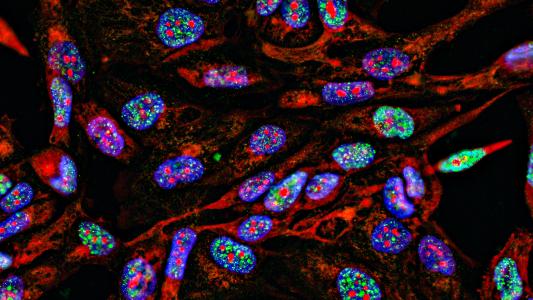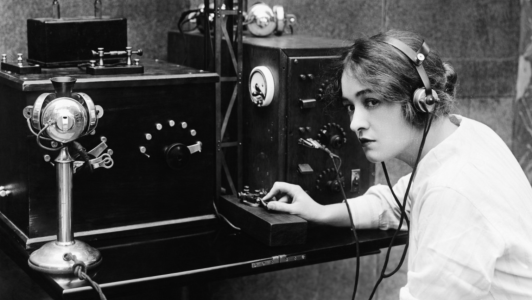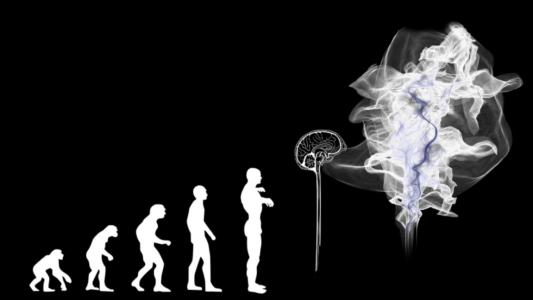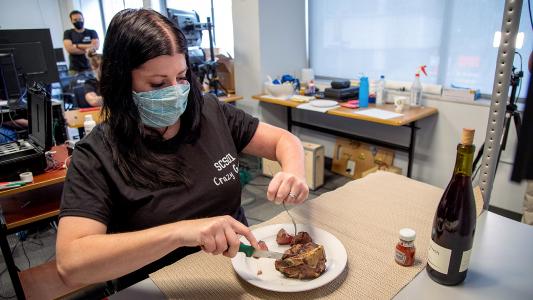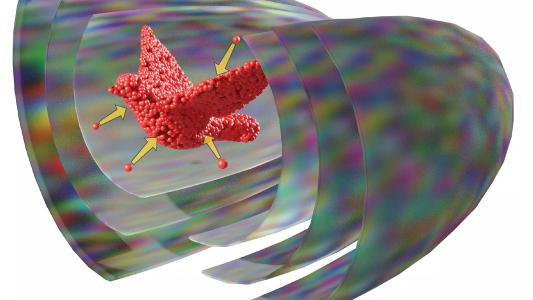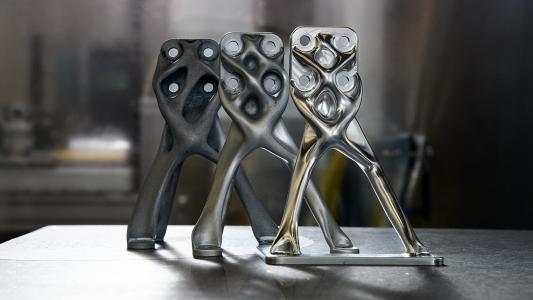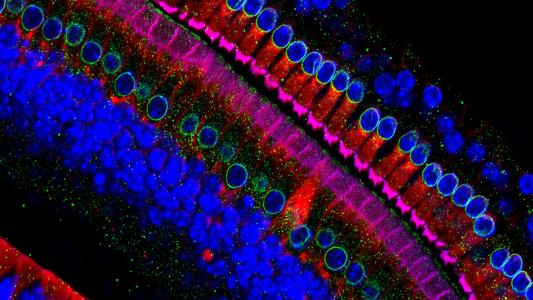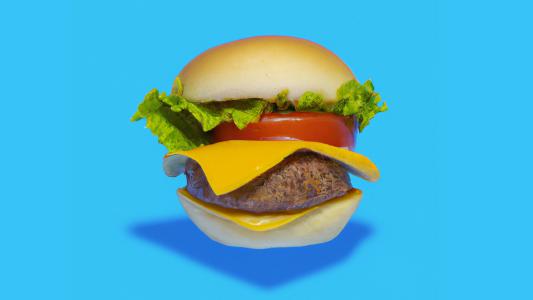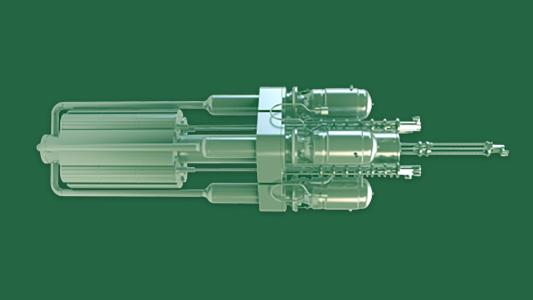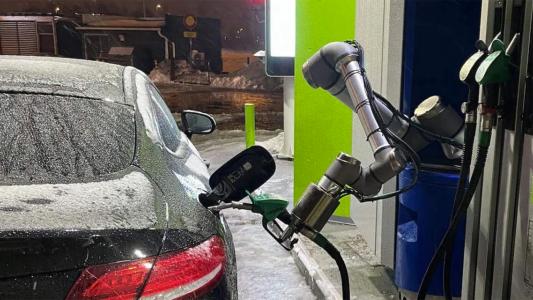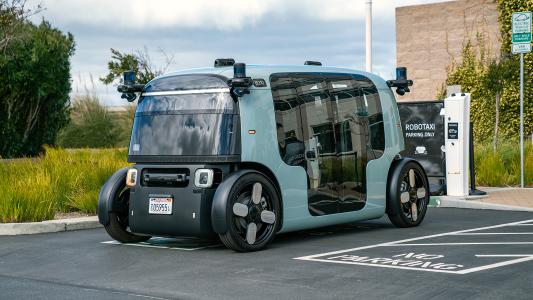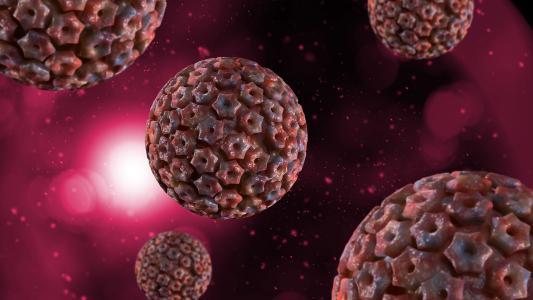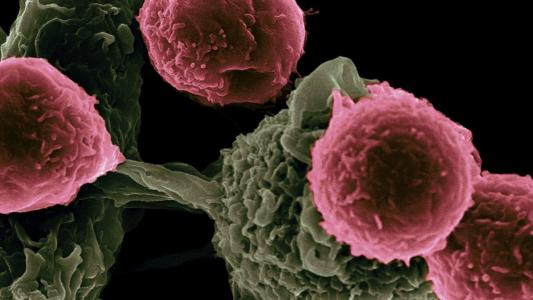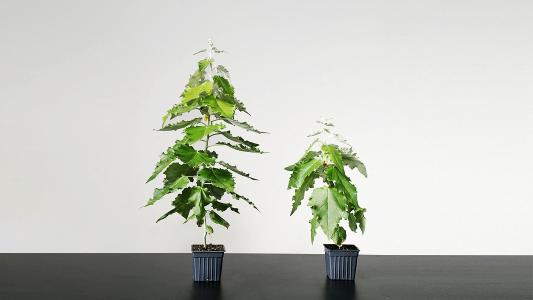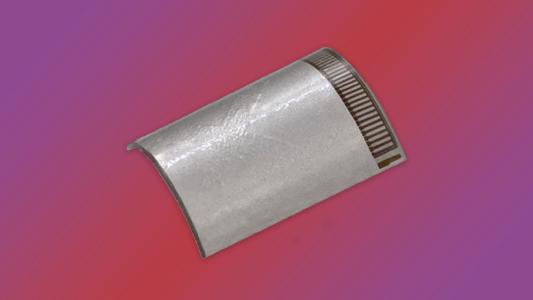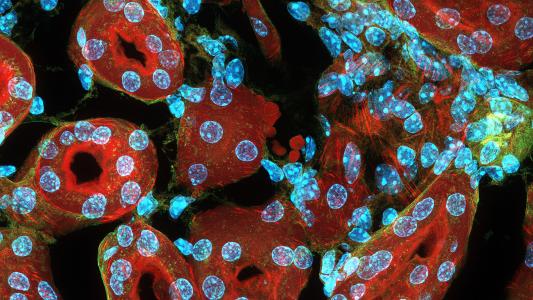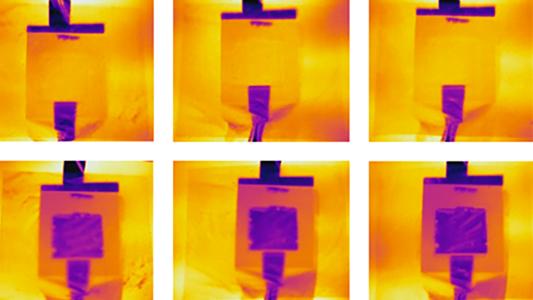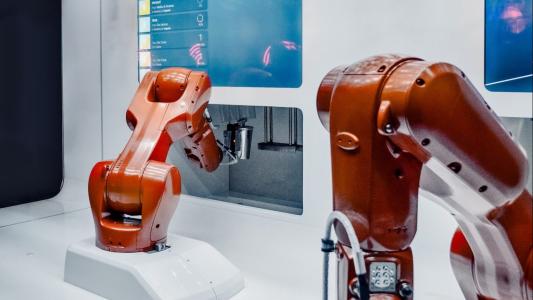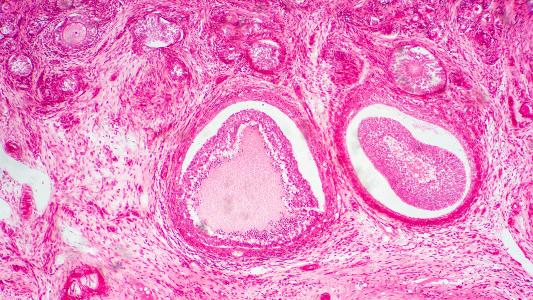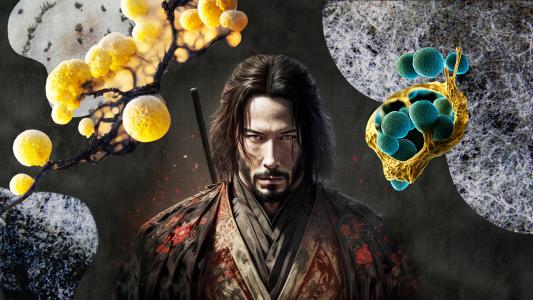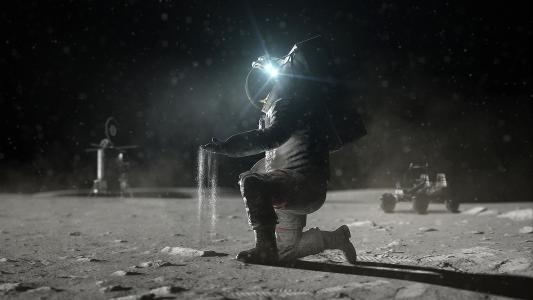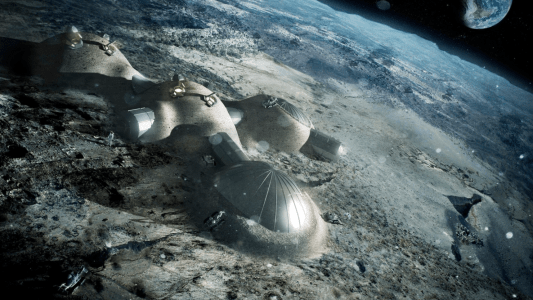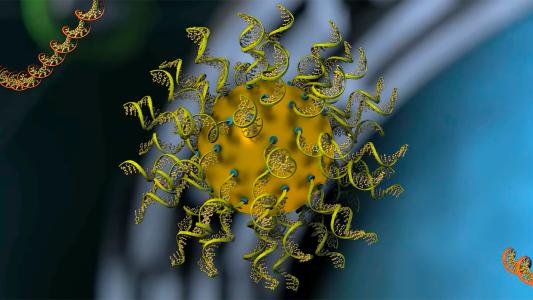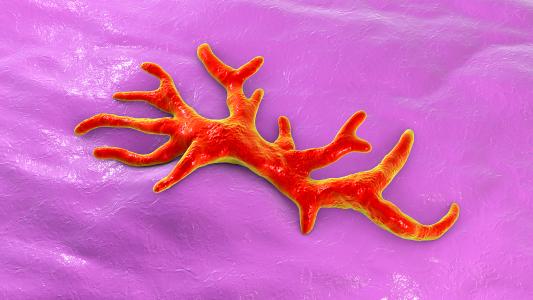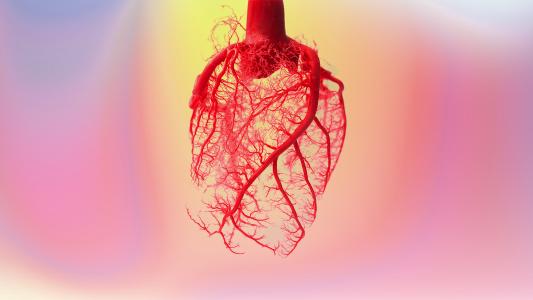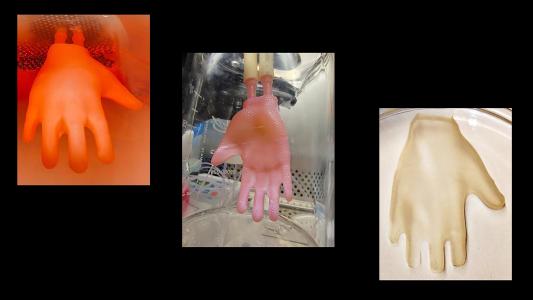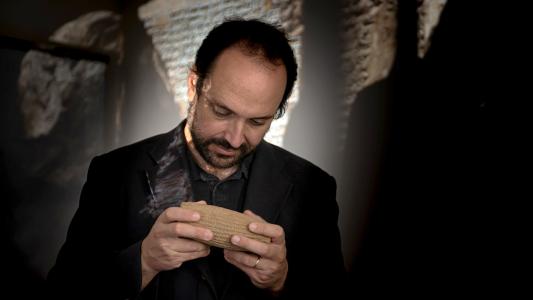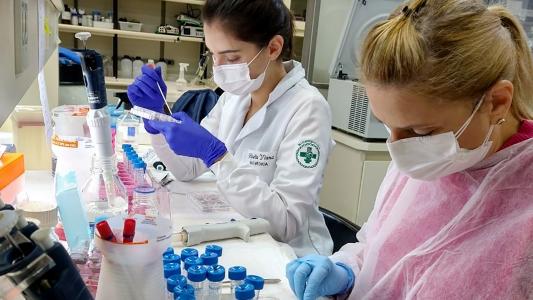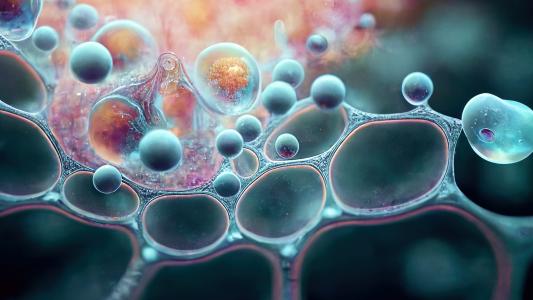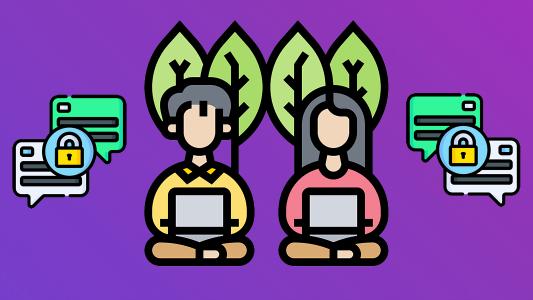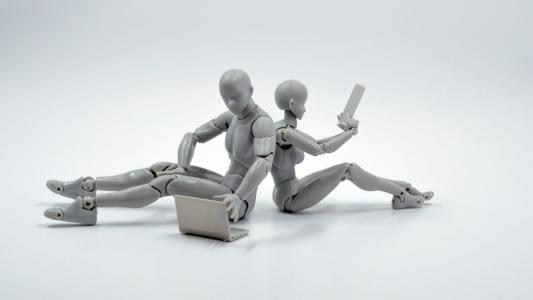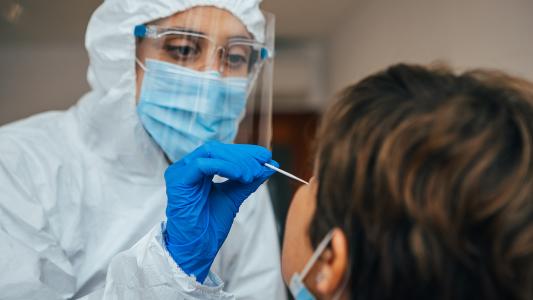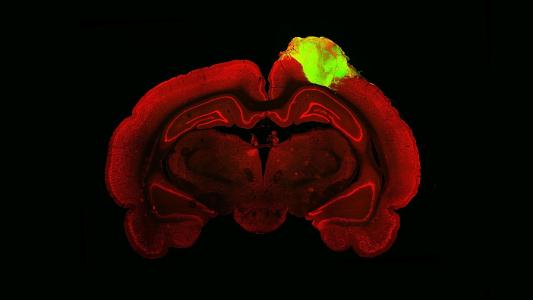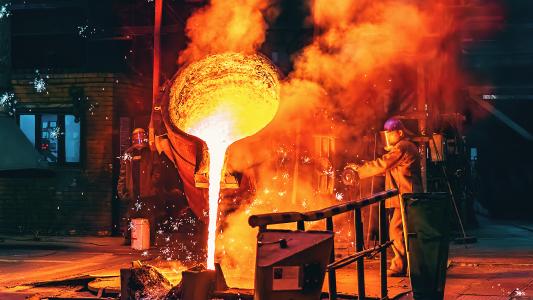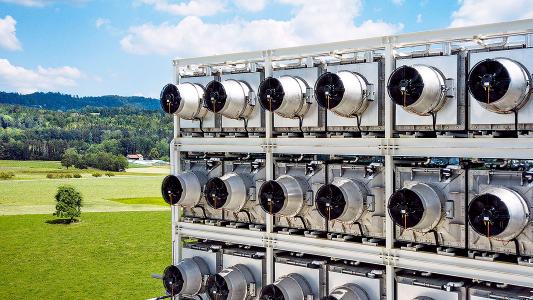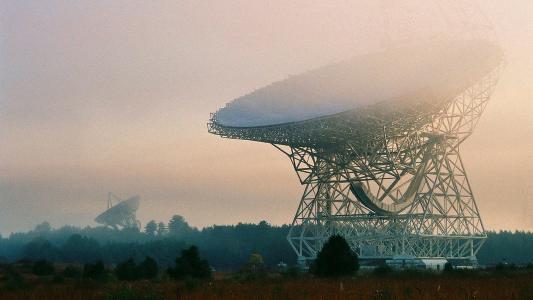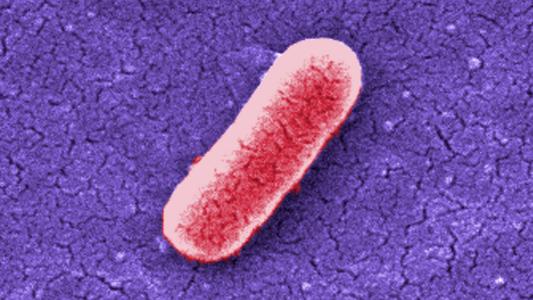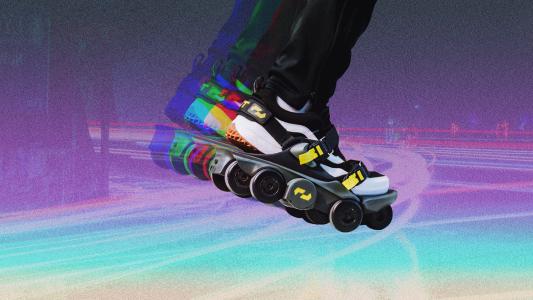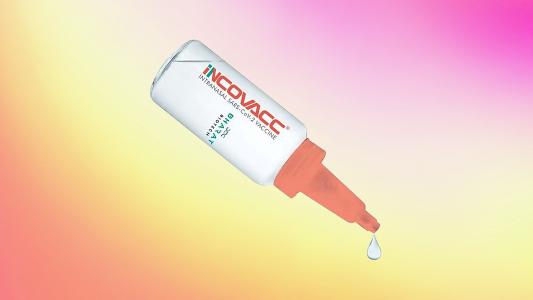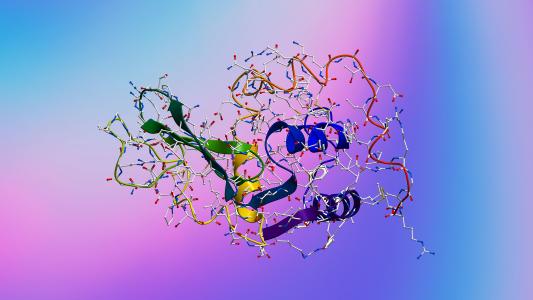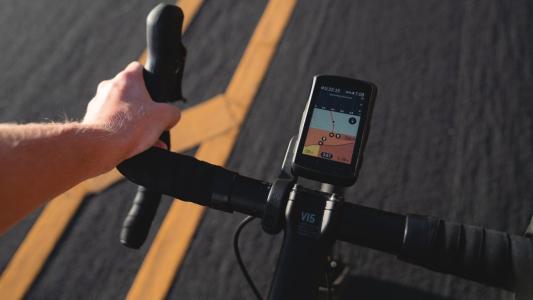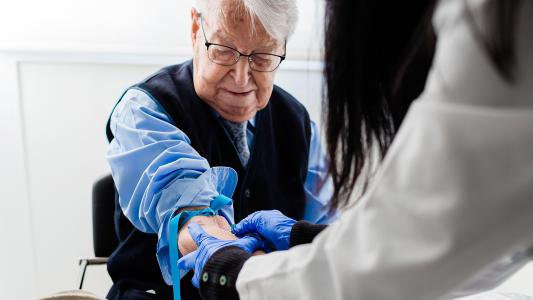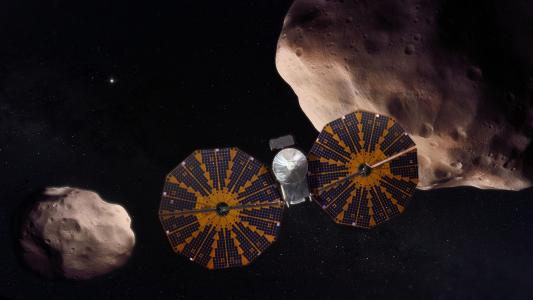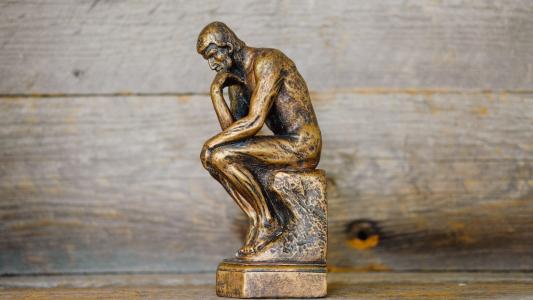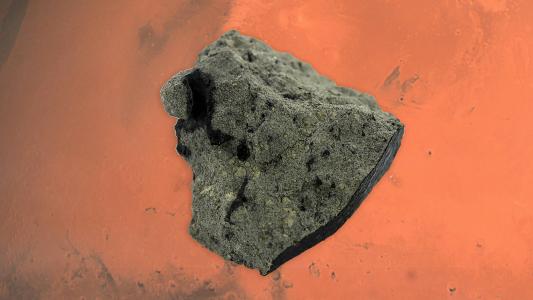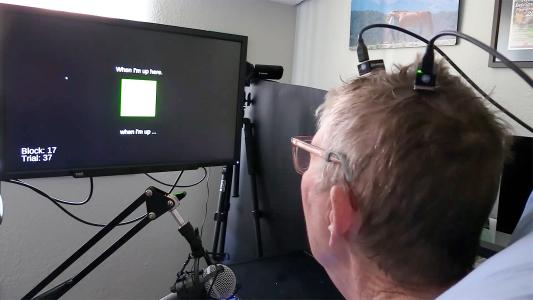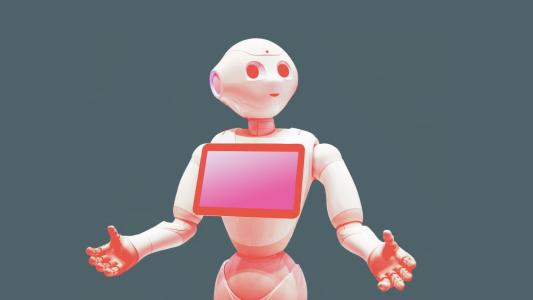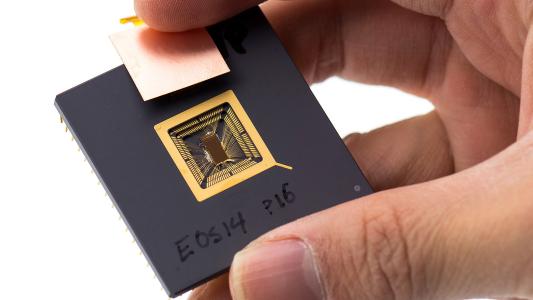First at-home test can tell you if it’s COVID or flu
The FDA has granted authorization to an at-home test that can tell COVID from flu, the first of its kind.
ESA thinks we can grow hydroponic gardens on the moon
ESA is researching how to pull valuable nutrients from lunar regolith so that future astronauts can use them in hydroponic gardens.
How Singapore’s “Garden City” vision fused nature and urban design like nowhere else
Singapore's green thumb developed from its recent history. Its small size meant that staying independent required protecting its resources.
What is generative AI? An AI explains
Generative AI uses a type of learning called generative adversarial networks and has many uses, including creating images, text, and audio.
Watch: Robotic window cleaners take to the sky
In a bid to shake up the industry, two Israeli companies will soon deploy robot window cleaners to cities around the world.
Goodyear announces 90% sustainable tire
Made from a variety of recycled and repurposed materials, the tire may be perfectly suited for electric vehicles.
“Nothing” doesn’t exist. Instead, there is “quantum foam”
Even if you took an empty container devoid of all matter and cooled it to absolute zero, there is still "something" in the container.
Coastal cities created 40 Manhattans’ worth of new land since 2000
The first global assessment of land reclamation found that people have added 900 square miles of land to Earth’s coasts this century.
Psychedelics are helping dying patients overcome their existential distress
End of life patients face existential and spiritual challenges other patients do not. Psychedelics may be uniquely suited to helping them.
Computer scientist explains why even in the age of AI, computing isn’t limitless
A computer’s power is still limited by the number of operations it can execute per second and the efficiency of the algorithms it runs.
Apple has a secret project to help people with diabetes
Apple is developing tech that could put noninvasive blood glucose monitoring right into its smartwatches, according to a Bloomberg report.
These 3D-printed batteries could be the future of clean energy
Silicon Valley startup Sakuu has developed a 3D-printing platform that it says can mass produce solid-state batteries, in any shape and size
ChatGPT versus AI-enabled Bing. How do they differ?
Microsoft has integrated an AI language tool into its Bing search engine that it claims is more powerful than ChatGPT.
Amazon TVs can now stream directly to cochlear implants
Amazon is making it possible for people with hearing impairments to stream audio from its smart TVs directly into their cochlear implants.
You can build a house out of this super-grass material
Plantd is turning to fast-growing grasses to decarbonize construction.
New MS treatment targets the gut microbiome
We may be able to prevent chronic inflammation in multiple sclerosis patients by manipulating their gut microbiomes.
Small wonders: The antibodies from camels and sharks that could change medicine
A handful of animals make a pared-down version of our own antibodies. Scientists hope to harness them as treatments for human illnesses.
New “biohybrid” machines weave electronics with living cells
By combining combine genetic and electrical engineering, scientists have developed a new technique for wiring electronics into living matter.
Inhaling this powder shields lungs from infection
An inhalable powder that acts as an “invisible mask” for the lungs could potentially help end the COVID-19 pandemic.
ChatGPT answers physics questions like a confused C student
When asked about physics, ChatGPT gave a mixture of true, false, relevant, irrelevant, and contradictory answers — all with authority.
New light therapy could make cancer treatment better and safer
A new light-activated cancer treatment developed in the UK could make existing therapies better and safer.
Today, people fear Twitter. In the 1850s, they feared telegrams
Telegrams elicited the exact same concerns, including the spread of misinformation, “addiction” among youth, censorship, and impersonation.
In a first, scientists use AI to create brand new enzymes
In a scientific first, researchers have created brand new enzymes designed with the help of AI.
A new look at the strange case of the first gene-edited babies
Did He Jiankui "Make People Better"? A new documentary leans toward a different narrative about gene-editing than we've heard before.
New AI improves itself through Darwinian-style evolution
AutoML-Zero is a simple proof-of-concept that shows how t might someday be scaled up and applied to more complex problems.
First: Spinal cord stimulation helps stroke survivors control arms again
Spinal cord stimulation has been shown to improve upper-limb mobility in stroke survivors for the first time.
German scientists 3D print objects with “acoustic holograms”
By using shaped ultrasound, researchers in Germany have developed a way to 3D print objects in one shot.
NASA’s new balloon-borne telescope was designed with AI
An AI-powered technique called “generative design” is helping NASA engineers design better hardware, more quickly.
New study discovers how to reverse hearing loss
A new study of hair cell regeneration in mice could help researchers figure out how to reverse hearing loss in people.
Startup uses DALL-E to make food menus more appealing
Food tech startup Lunchbox has made the text-to-image AI DALL-E 2 available to generate food pics for restaurant menus.
These “microreactors” could be the future of nuclear power
Microreactors that can be built and deployed much faster than traditional nuclear power plants could be the future of nuclear energy
China’s spy balloon: Inflatable eyes in the sky have been used for centuries
Spy balloons remind us that the oldest technologies are still being developed to achieve military effects today.
Gas-pumping robot lets you stay in your car when it’s cold out
Autofuel, a gas-pumping robot that can be installed right next to existing gas dispensers, could be the answer to our refueling woes.
This $1 pill cuts binge drinking
Naltrexone, a medication that costs less than $1 per dose, helped people cut back on their binge drinking in a small study
Zoox deploys first-of-their-kind robotaxis in California
Amazon subsidiary Zoox hits a new milestone, transporting passengers in its driverless robotaxis on open public roads.
ChatGPT in academia: Can it help with the research process?
Several researchers have already listed a chatbot as a co-author on academic studies, but ChatGPT is better in some areas than others.
Herpes virus helped kill a deadly form of breast cancer in a clinical trial
A combination of an engineered herpes virus and chemo showed promise for treating triple-negative breast cancer in a small study.
A single dose of an old drug could save 2 million mothers from sepsis every year
A large international study has found that a single oral dose of a common antibiotic can “significantly” reduce the risk of maternal sepsis
How diet influences the conflict between cell “cooperators” and “cheaters”
Cancer-protective microbes support cooperative behaviour by bodily cells, but cancer-inducing microbes undermine it.
Startup plants first GMO trees designed for carbon removal
Living Carbon is ready to begin planting thousands of GMO trees engineered to pull 27% more carbon from the air.
Will “The Singularity” rescue us from death?
In transhumanism, "The Singularity" promises possibility of uploading your consciousness into silicon, guaranteeing a kind of immortality.
Strange life forms create an “alien” ecosystem in an abandoned uranium mine
Scientists have found diverse life forms dwelling in an abandoned, flooded uranium mine in Germany, creating an "alien" ecosystem.
This tiny device lets you see your heart while exercising
A new wearable heart monitor powered by AI provides accurate and continuous measurements of cardiac performance at all times.
Yoga: Modern research shows a variety of benefits to both body and mind from the ancient practice
Researchers have begun to study yoga's effects and are finding that it has great benefits for both mental and physical health.
Experiment regenerates a damaged kidney for the first time ever
A new treatment that caused the diseased kidneys of mice to regenerate might one day do the same for people.
DMT therapy appears effective for depression in phase 2 clinical trial
London-based Small Pharma has released positive top-line results for their phase 2a trial of DMT as an antidepressant.
This “chameleon” material can heat or cool houses on demand
Thanks to “electrochromism,” a newly developed material can switch between absorbing and reflecting heat from the sun.
An expert explains how you’re using ChatGPT wrong
ChatGPT is designed to produce strings of words that sound good in response to the words you give it – not to provide you with information.
65% of retail jobs could be automated by 2025
The retail sector has been making ground in the adoption of automation with the use of self checkouts, and robots and AI in supply chains.
New CAR-T therapy shows promise against ovarian tumors
A CAR T-cell therapy that’s effective in mice with ovarian cancer may bring us closer to using the blood cancer treatment against tumors.
John Deere unveils quieter, electric riding mowers
John Deere is entering the electric market with models aimed at homeowners and the golf industry.
A shield of lunar dust could cool the Earth, says Harvard scientists
New research out of Harvard shows how we could potentially cool the Earth by creating a massive sun shield out of moon dust.
Terraforming: why the Moon is a better target than Mars
While most of humanity's terraforming dreams have focused on Mars, a better candidate may be even closer: the Moon.
Scientists have discovered how to make almost any vaccine more potent
An approach called “rational vaccinology” could allow us to design more powerful vaccines, just by rearranging their ingredients.
Microsoft adds “AI copilot” to Edge web browser
Microsoft is incorporating the tech behind ChatGPT into its Edge web browser, giving users an "AI copilot" to assist them on the internet.
“Brain-eating” amoeba beaten by old European drug
A man infected by a deadly brain-eating amoeba is on the road to recovery thanks to a decades-old drug used to treat urinary tract infections.
CRISPR eliminated heart damage in mice after a heart attack
A new CRISPR base editing therapy was able to prevent mice from suffering seemingly any heart damage following an induced heart attack.
Skin grafts can now be 3D-printed to fit “like a glove”
Bioprinted skin grafts come in sheets, not the contours of the body. New research from Columbia envisions grafts which fit like a glove.
New evidence that teeth can fill their own cavities
Researchers find that, in some cases, tooth dentin can be regrown instead of needing to be replaced with man-made composite.
AI is helping decode the oldest story in the world
A new algorithm is helping decode ancient cuneiform tablets — including those containing the oldest known work of world literature.
“Bioprinted” skin could help end animal testing for cosmetics
Bioprinted skin can now look and act so much like real skin that it could one day replace some animal testing.
How Einstein challenged quantum mechanics and lost
Is quantum mechanics weird? Yes. Is it wrong? No. At least not in any way Albert Einstein could prove.
World’s largest electric cargo plane can carry up to 400 pounds
The Pelican is an autonomous electric cargo plane capable of transporting 400 pounds of cargo 200 miles in less than three hours.
Mindfulness can slow down the brain’s aging and more
The benefits of practicing mindfulness carry over into everyday life – even when you aren’t actively meditating.
These are the next big breakthroughs in medicine
In partnership with Intuitive
These companies are working to change the future of health care.
Google announces Bard, a ChatGPT-like AI (Updated)
Google has announced Bard, a conversational AI similar to ChatGPT, and plans to integrate similar AI into its search platform “soon.”
Twitter’s founder donated a quarter of a million to a new social media app
Jack Dorsey has donated 14 bitcoins to Nostr, a decentralized protocol on top of which developers can build apps, such as a social network.
5 AI experts predict how ChatGPT and DALL-E will affect the future of work
Will society will use this moment of AI breakthroughs to advance equity or exacerbate disparities? Five experts weigh in.
DARPA is developing an X-plane steered only by blasts of air (Updated)
DARPA is developing an X-plane that uses “active flow control” to maneuver, rather than traditional flight control surfaces.
Yale researchers have found a way to spot new viruses
By screening negative nasal swabs for a specific antiviral protein, a Yale team believes we may be able to find hidden viruses before they emerge.
The biggest AI breakthroughs of the last year
Last year saw breakthroughs from AI tools such as ChatGPT, DeepMind, and DALL-E, which generate text and code.
Human-rat brain hybrid shows a way to cure blindness
New research has shown that human “mini brains” can integrate with damaged rat brains to perform functions related to sight.
World’s biggest direct air capture plant is trapping CO2 in Iceland
Direct air capture technology is starting to take off, with ever-larger CO2 removal facilities opening across the globe.
No, 90% of new businesses don’t fail. Here’s why.
To say that something failed, simply because it stopped or changed, is to dangerously limit our view of the world.
Undergrad develops AI to hunt for alien signals
An AI trained to hunt for technosignatures from intelligent alien life found 8 interesting signals on its first deployment.
New “cyborg” cells could be the future of medicine
Semi-living “cyborg” cells might one day do everything from deliver cancer treatments to help clean up the environment.
World’s fastest “shoes” increase walking speed by 250%
Shift Robotics is taking pre-orders on Moonwalkers — $1,400 “shoes” that let you walk 2.5x faster without expending any extra energy.
Could hydrogen-fuelled flights be a reality by 2035?
By 2035, hydrogen fuel cells could be used to electrify mid-range flights and hydrogen combustion aircraft could be used on long-haul flights.
First-of-its-kind nasal vaccine for COVID-19 deployed in India
India has begun deploying a nasal vaccine for COVID-19 that may be able to prevent infections, not just limit their severity.
ChatGPT-like AI creates new bacteria-killing proteins
Using a large language model AI, biotech startup Profluent has created new antimicrobial proteins.
5 things you didn’t know GPS could do
You’d be surprised at all the things that GPS — the global positioning system that underlies all of modern navigation — can do.
Your microbiome is influenced by the people you hang out with
The human microbiome is largely influenced by our social interactions, according to the largest study to date of microbiome transmission.
mRNA could train our blood cells to stop chronic inflammation
A new study has identified the substance used by our white blood cells to reduce inflammation when it is no longer needed.
Why 2023 will be “the year of mixed reality”
Mixed reality, in which immersive virtual content is seamlessly combined with our physical world, is set to transform the world.
New blood test predicts Alzheimer’s 3.5 years in advance
A blood sample and machine learning helps predict whether people with mild cognitive impairment will soon develop Alzheimer’s.
NASA’s “Lucy” will take a 40,000-mile detour to visit this asteroid
NASA has added a tenth asteroid flyby to the record-breaking Lucy mission so that it can test a new asteroid-tracking system.
Why changing your mind is a feature of evolution, not a bug
Reasoning by yourself is a much weaker tool than contributing your reasoning to a group and being flexible to changing your mind.
This near-Earth asteroid is 4.2 billion years old and nearly indestructible
By analyzing just three dust particles, researchers learned that the rubble pile asteroid Itokawa is 4.2 billion years old and hard to kill.
Rare Martian meteorite is full of complex carbon molecules
A 650-million-years-old meteorite found in Africa shows the rich and complex chemistry that once happened on Mars.
The most undervalued problem-solving tool? Lateral thinking.
Lateral thinking is a way of approaching problems. It deliberately forgoes obvious approaches in favor of oblique or unexpected ones.
New brain implant breaks record for turning thoughts into text
Stanford researchers have developed a brain-computer interface that allowed a woman to “type” 62 words per minute using only her thoughts.
Extreme heat is changing habits of daily life
Researchers found that extreme temperatures actually have a much larger effect on human activity than the previous estimations.
In Japan, humanoid robots could soon become part of the family
More than any other nation, Japan tends to feel comfortable with the idea of humanoid robots entering the home.
Simple tweak to cancer treatment reduces relapse risk by 28%
Delivering chemotherapy to colon cancer patients before and after surgery — instead of just after — reduces their risk of recurrence by 28%.
An open-source option is shaking up the microchip industry
The RISC-V architecture for microchips is transitioning from a novelty to a major player in the tech world.
Cosmic dust from Venus is inspiring new air pollution-busting technology
Inspired by chemistry observed on the surface of Venus, researchers produced a synthetic material that could improve air quality.
New AI will teach soldiers to dress wounds, fly helicopters in AR
DARPA is developing AI assistants that will display instructions to military personnel through augmented reality headsets.
